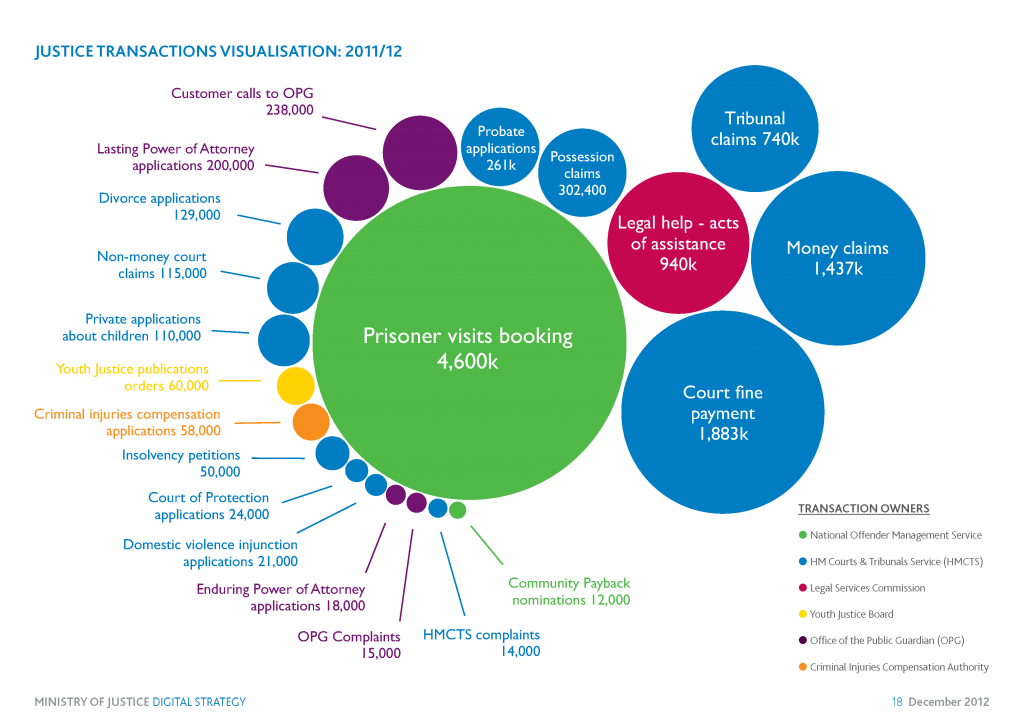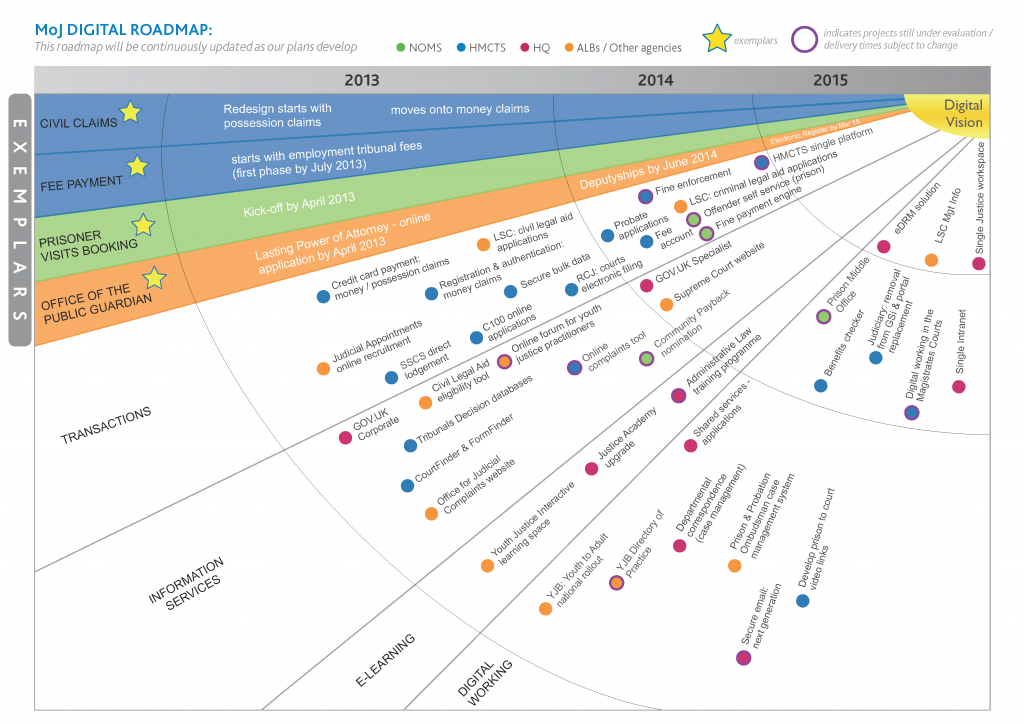
Whatever you may feel about some of the cost-saving justice changes afoot, there’s no doubt that the government’s “digital by default” strategy will both help achieve some of the savings they crave and deliver better services.
The Justice Secretary in the foreword to the MoJ Digital Strategy believes:
It will transform the services we provide, the way we work and the systems and processes that underpin these priorities.
It enables us to design services around the needs of users to support better outcomes, whether that means tools to help rehabilitate offenders, providing victims with more information about their case, or allowing individuals to file claims more easily.
It allows us to deliver solutions at pace that are simpler, easier to use and better value for users and the government. Delivering digital services that people prefer to use allows us to dedicate alternatives like phone helplines to those who really need them, while reducing demand on these higher-cost channels.
Apart from the change in tense, I would largely go along with that.
Have a look at the following Justice Transactions Visualisation, showing how many transactions with Justice are undertaken each year (click the image to enlarge). Simply put, the bigger the blob, the bigger the imperative to digitise the process:
and the MoJ Digital Roadmap shows how these are scheduled in for development:
The thing to note at this point is that the development of these services is going on on GOV.UK rather than the Justice site which will gradually disappear.
Already there are a number of guides on GOV.UK to legal processes like divorce (and related), probate and employment issues, eg employment contracts. These are not earth-shattering developments, but they do already deliver “simpler, clearer, faster” information than what was on HMCTS/Justice before which was a bunch of PDF leaflets.
There are some transactional services that were already fully digitised but will now be redeveloped according to the new GOV.UK “agile” standards. These include Money Claim Online and Possession Claim Online. A good idea of the direction of development is given by the Lasting Power of Attorney service which is one of the first of the Governement Digital Service’s “digital exemplar” services to reach beta stage.
Not only will digitisation of these services reduce government expenditure, but it will also reduce the need for users to rely on lawyers (or other chancers) for many of the straightforward processes which we have tended to regard as legal, but which are in fact just intelligent, assisted form-filling. That’s not to say I predict the end of lawyers or even the end of private online services in these areas; it’s just to point out that if GOV.UK can deliver a “simpler, clearer, faster” service that meets at least basic “legal” needs for common transactions with government, then we can all move on to improve on the bits of justice that are in more need of private and third sector attention.

